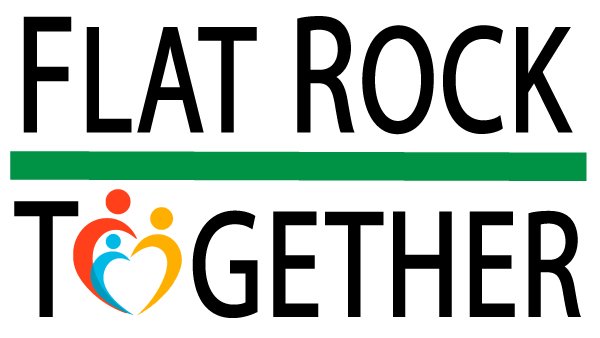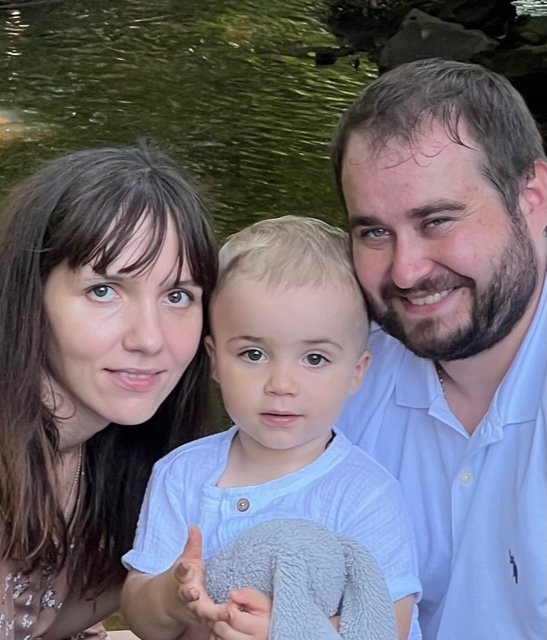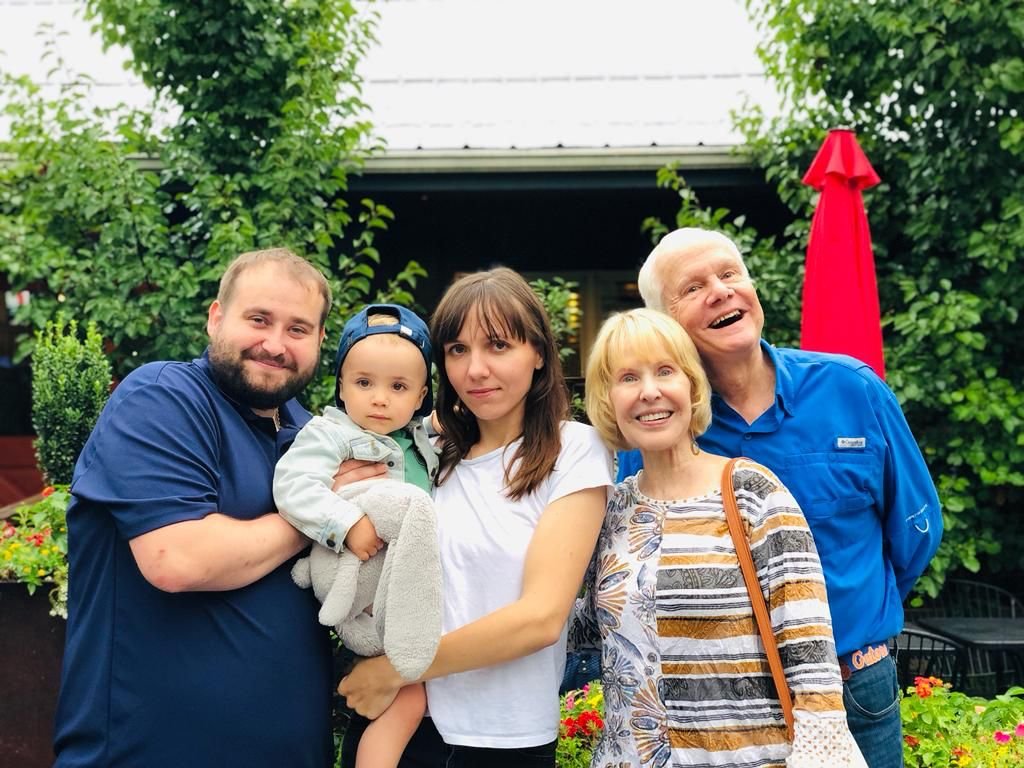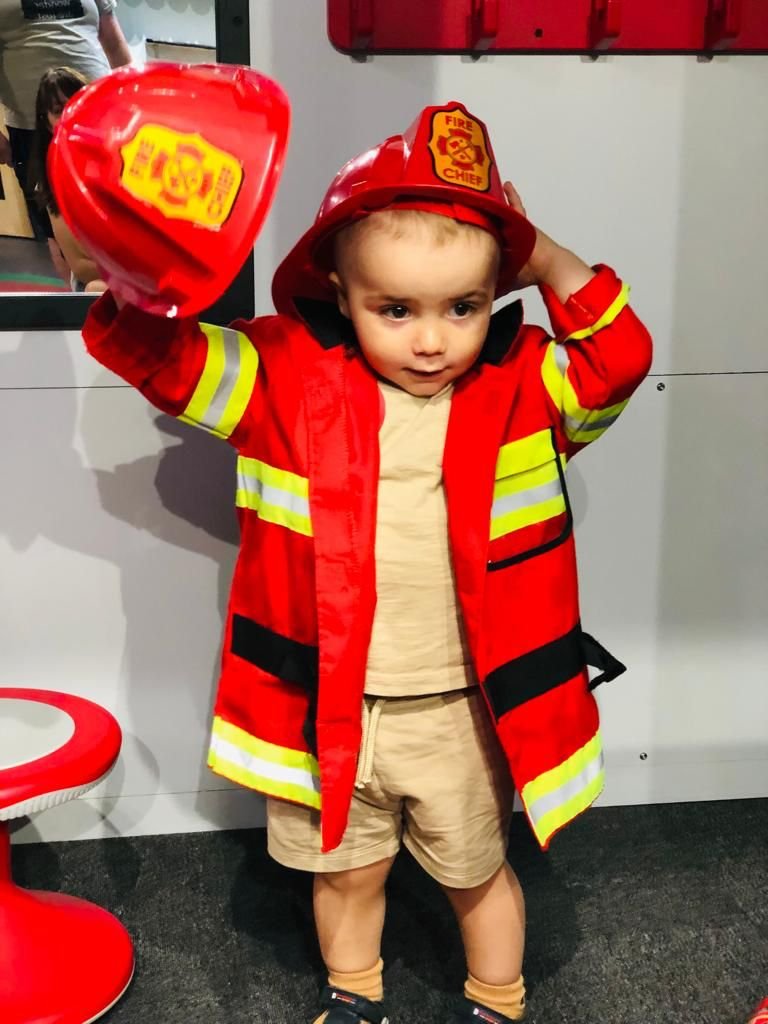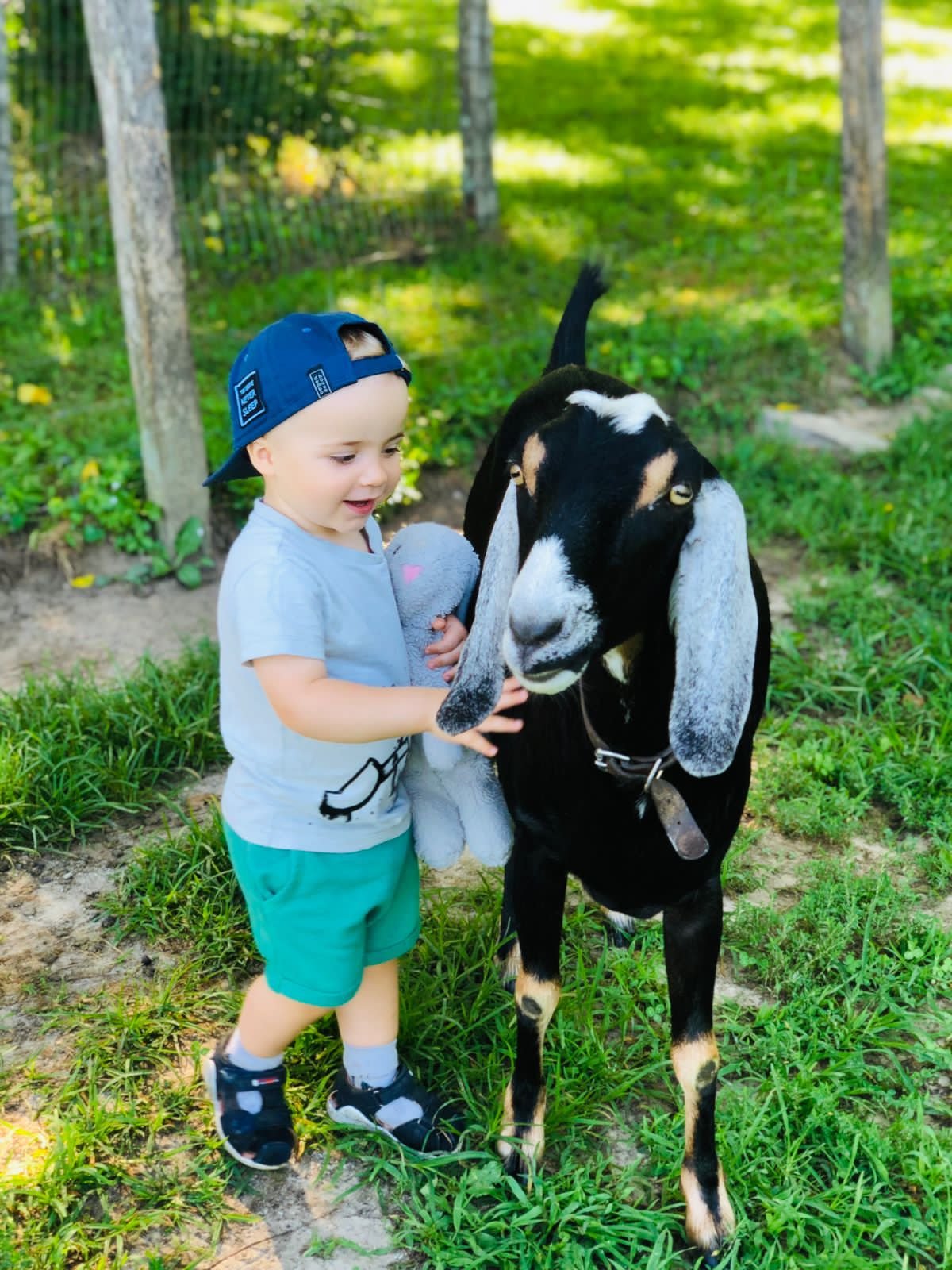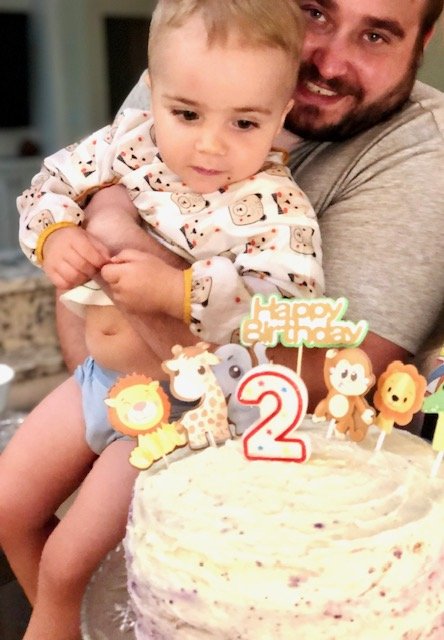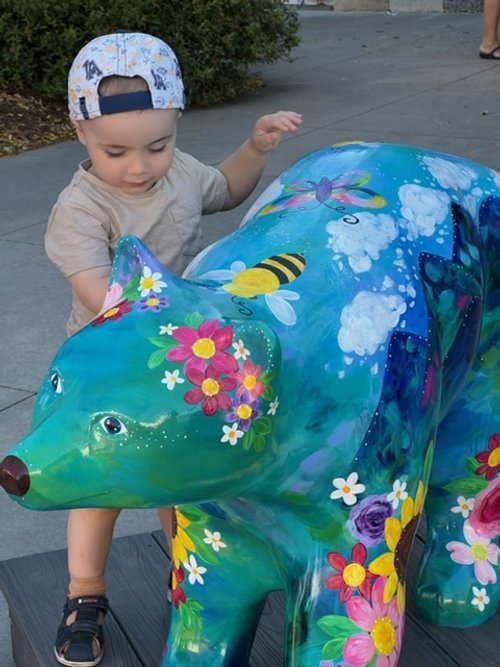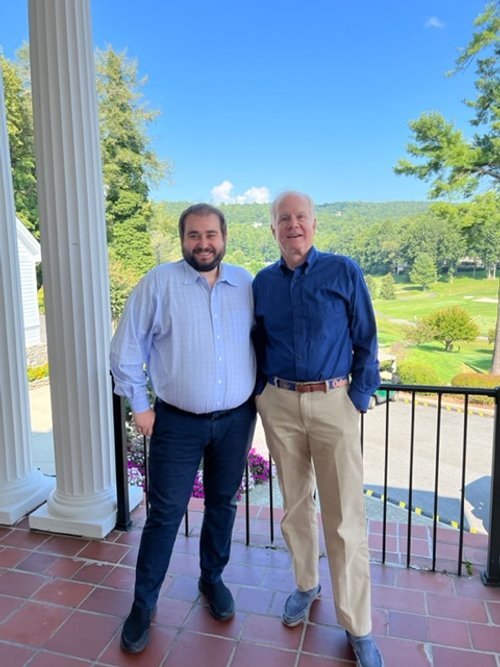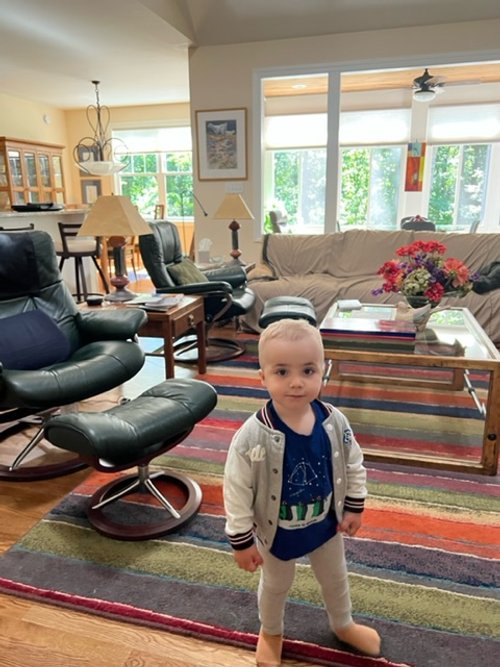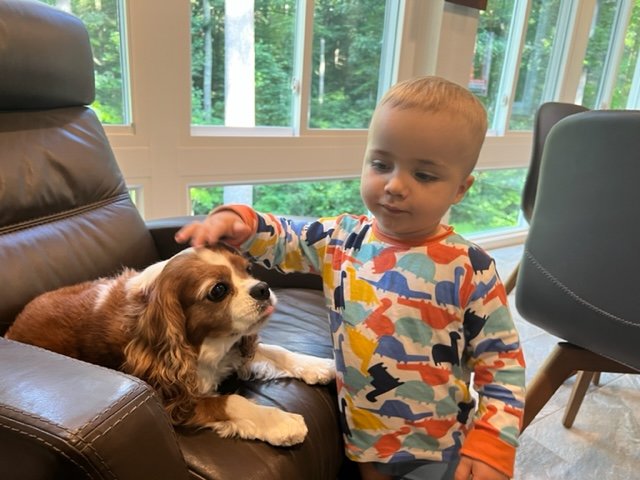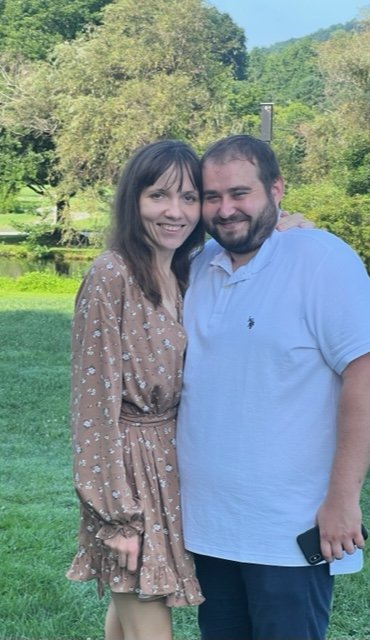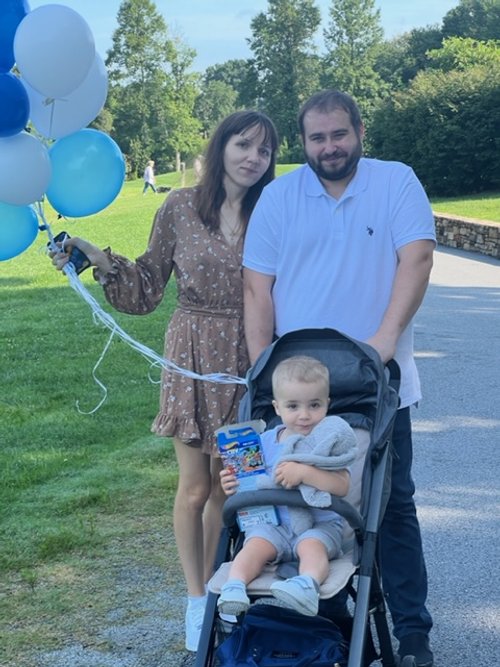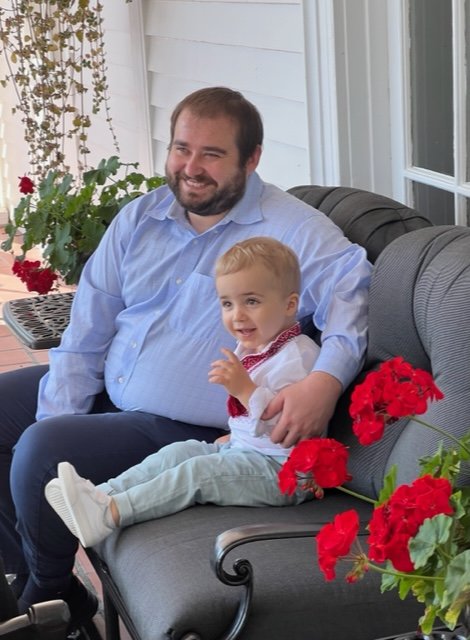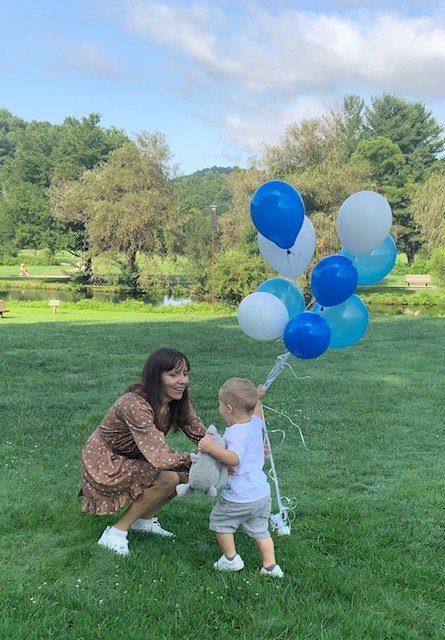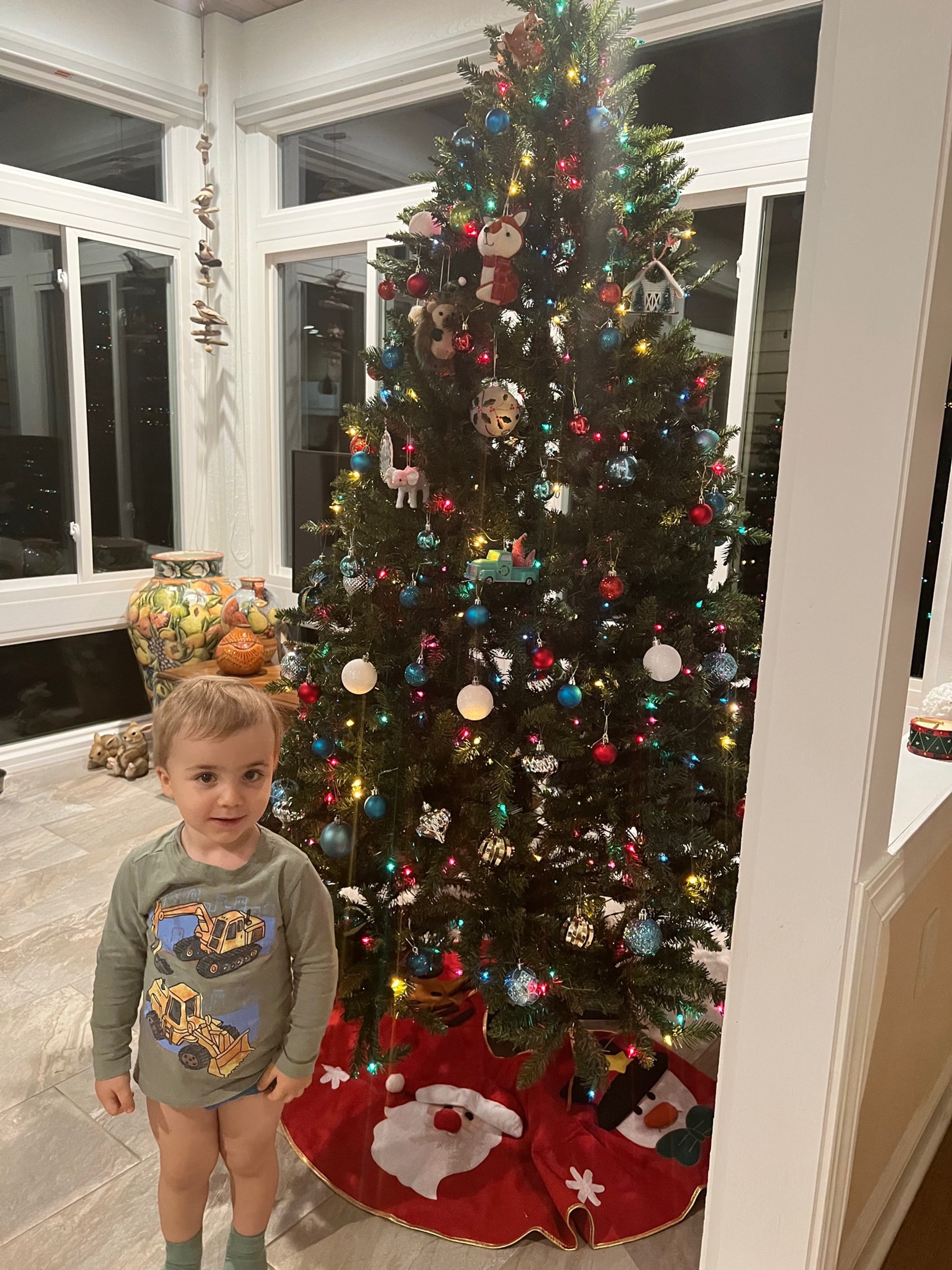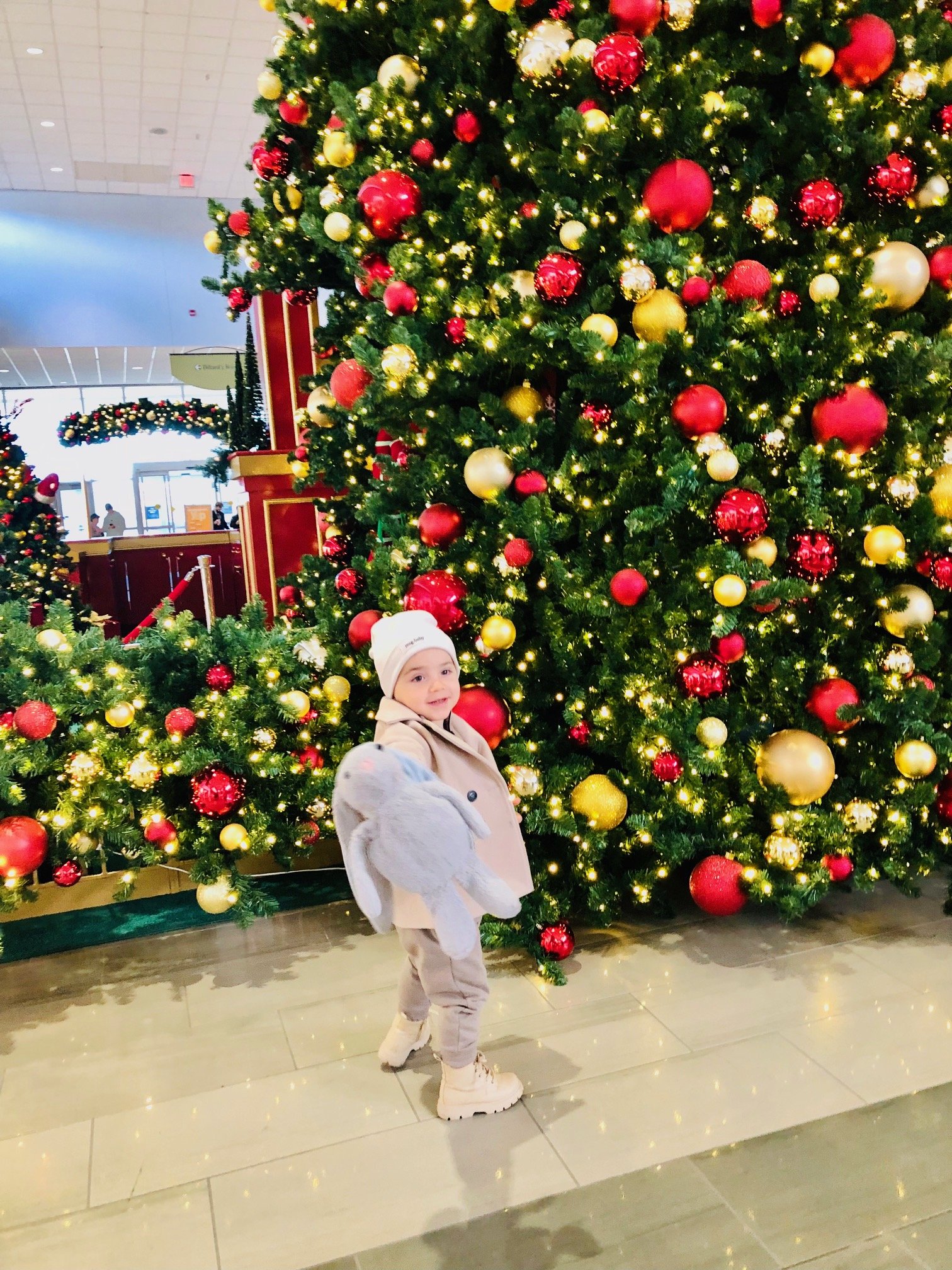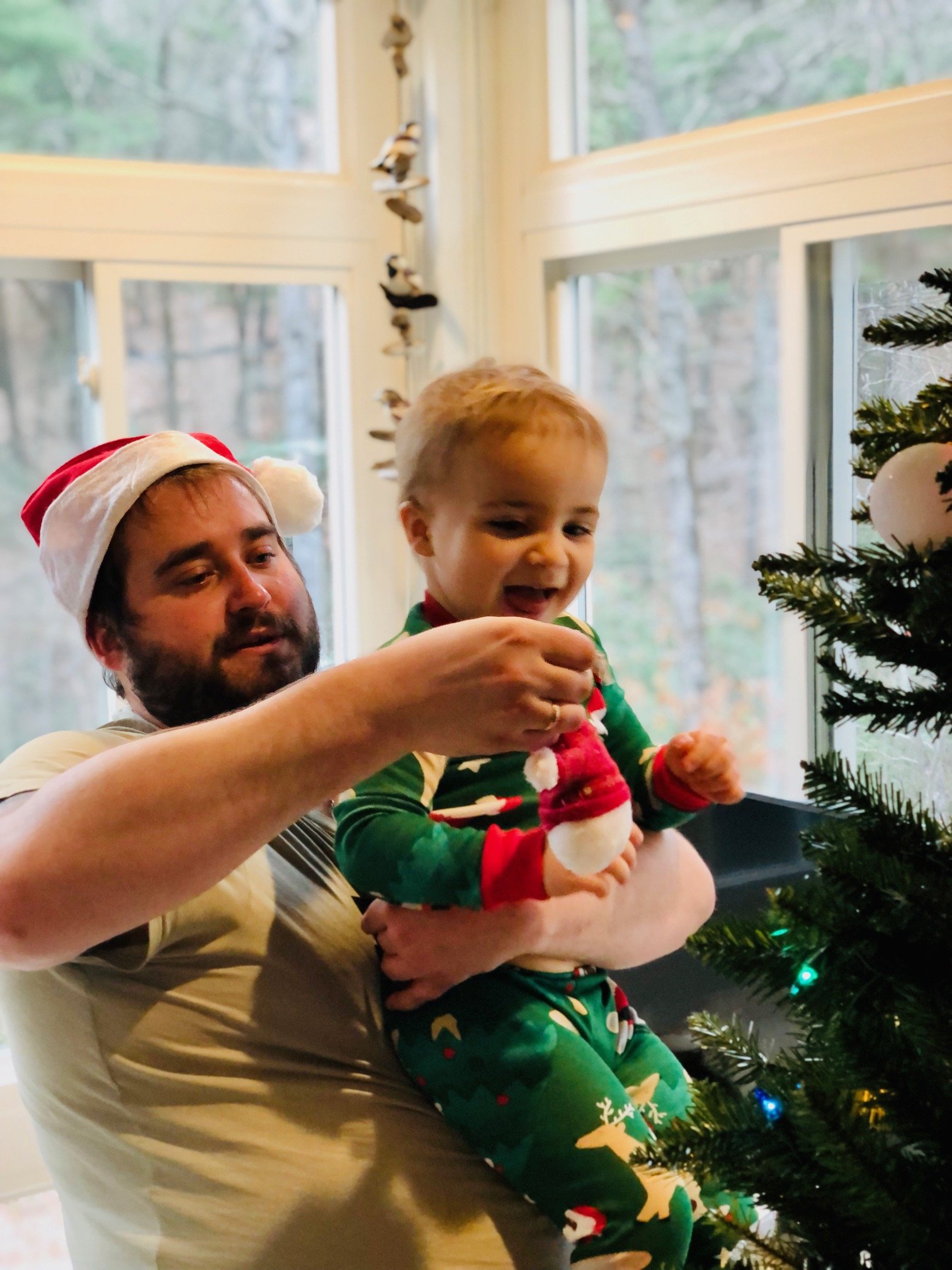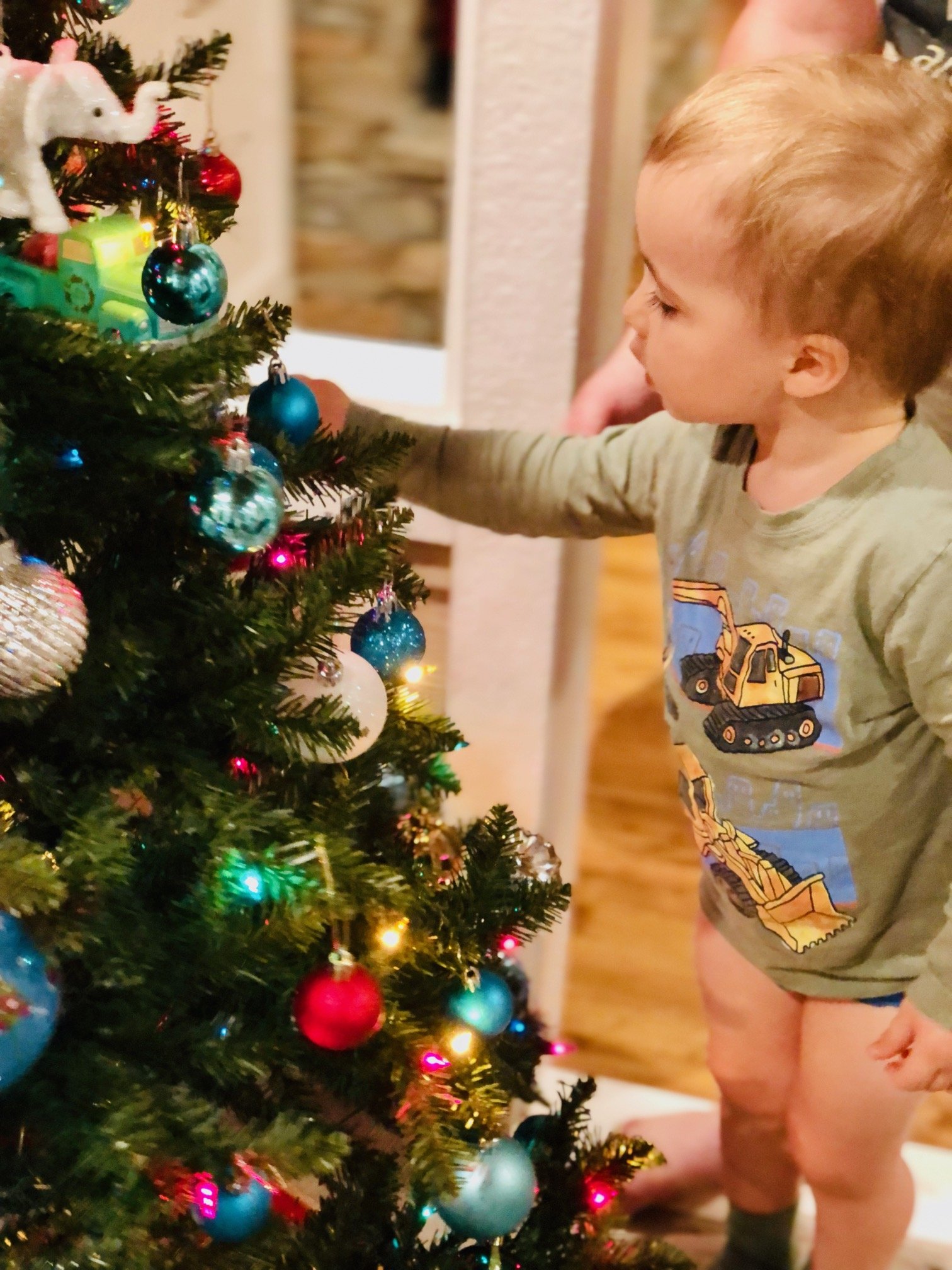From Kyiv to Flat Rock
/On the morning of February 26th, 2022, artillery shells rained down on the Kyiv region of Ukraine for more than 30 minutes. The threat of war rumbling for several weeks on the border between Russia and Ukraine had finally exploded into a life-altering and dream-shattering reality for millions of Ukrainian citizens.
Halyna, Dmytro, and Oleksandr
Among those whose lives were up-ended was a young family - Oleksandr Khrapchevskyi, age 29, his wife Halyna Khrapchevska, age 28, and their 20-month-old son, Dmytro. With all their dreams of a peaceful family life suddenly deferred, the young couple quickly resolved to pursue one primary objective - to keep their son safe and away from the capricious ravages of war.
Packing only what was necessary, Oleksandr and Halyna left Kyiv and headed 30 miles west of central Kyiv and away from the heaviest shelling, seeking refuge at her parent’s home. Although they did not know it at the time, that short journey of just 30 miles was to be the first step on a much longer odyssey leading them to a small village in the mountains of North Carolina - 5,246 miles away.
—-
As Oleksandr and Halyna scrambled away from the artillery shells and missiles that were devastating their hometown, Paula and Richard Willits watched the war unfold on the television screens of their home in Flat Rock, NC. Moved and dismayed by the images of senseless disruption, destruction, and death, they reached out to agencies organizing Ukrainian relief efforts. Richard gave money to Rotary International and Paula contributed to UNICEF.
But those efforts seemed an insufficient response to the scale of suffering they saw and read about. Richard broached the idea of doing more to help. Paula’s reply was immediate and direct. “Absolutely.”
Paula and Richard Willits moved to Flat Rock in 2020 from Florida after retiring from their careers as Executive Director of educational publications and a lawyer respectively. Richard had a former work associate at his law firm whose family had immigrated from Ukraine. Richard reached out to Mike and asked if he knew anyone working to get people out of the invaded country. Mike didn’t immediately know of anyone but promised to look into it.
Mike made a number of phone calls to people he knew with contacts in Ukraine and eventually found a woman named Ulyana Marchenko (Uly) in Raleigh who was working to match Ukrainian refugees with host families in North Carolina. He provided Uly’s contact info to Richard and Paula. It was April at this point and the war was several weeks old and continuing to escalate. Richard immediately picked up the phone and called Uly to ask if he and Paula could help.
—-
Back in Ukraine, the young family was still on the move. At Halyna’s parent’s house, the Khrapchevskyis were trying to shelter with approximately 30 other extended family members. The area of Ukraine affected by war continued to grow, however, and Halyna’s family home began to feel less and less safe. It was time to move again.
Oleksandr and Halyna decided to keep moving west - farther away from the Russian army invading from the east. They eventually arrived at Oleksandr’s father’s home 275 miles further west and relatively close to the borders of Poland and Belarus. Even there, however, the threat of war loomed ominously. More troops were being amassed in Belarus and the threat of a secondary invasion from Belarus seemed increasingly likely. With nowhere else in Ukraine to flee, the Khrapchevskyis made a very dramatic and difficult decision. It was time to leave Ukraine.
Working with their contacts in Ukraine, Oleksandr and Halyna researched options for leaving their homeland. “I tried to find out how to leave Ukraine,” Oleksandr explains. “I see in Europe a lot of Ukrainians. I see that a lot of people there live in big shelters. We tried to find something better for our child.” Using Facebook to look for better options, Oleksandr eventually made connections that proved fruitful. “I found on Facebook a woman that knows other people, and these people know other people who know Paula and Richard.” The first strands of a potential lifeline for the Khrapchevskyis were being woven together.
—-
During Richard’s initial conversation with Uly, she was not very encouraging about being able to match Ukrainian refugees with the American couple. Most of her contacts in Ukraine, she explained, had relatives in the U.S. which helped simplify the immigration process. Discouraged, but not willing to give up Richard and Paula asked that Uly let them know if she found anyone who they might be able to help. A month passed without further news.
Then in May, Uly called back. “I think I have the perfect match for you,” she said. Through a long series of random contacts, Uly had been in conversation with Oleksandr and Halyna for a month. Through those conversations and email exchanges, she became convinced that the young professional couple - Halyna is a pharmacist and Oleksandr most recently worked as a pharmaceutical sales representative - and their child were excellent candidates for a match with American hosts. But because Oleksandr and Halyna didn’t have relatives in the U.S., Uly also knew they would need just the right family to serve as their sponsors. Uly’s thoughts turned to the Willits in Flat Rock.
Excited by the news of a possible connection, Paula researched the process of hosting Ukrainians fleeing the war. One article she read stated, “Be prepared for a boatload of paperwork.” That advice proved to be prescient. Richard and Paula immediately began to tackle the mountain of forms required by the Department of Homeland Security. The voluminous paperwork required sought to determine if the Willits had both good intent and sufficient financial standing to support the Ukrainian family.
Completing all the paperwork took Paula and Richard two weeks of consistent effort. The forms required extensive background information on both the Willits and the Khrapchevskyis. From Raleigh, Uly worked to collect the necessary information from Oleksandr and Halyna and relayed what she learned back to Paula. At the same time, the Willits were scrambling to collect the comprehensive banking and tax records necessary to prove their financial standing.
Once the reams of paperwork were complete, the Willits submitted the requisite forms to DHS - and prepared to wait for what would surely be a long and complicated bureaucratic process. It wasn’t. Two days later, the Willits got the call. They were approved to host the young family from Ukraine. It was going to happen.
—-
Back in Ukraine, Oleksandr, Halyna, and Dmytro gathered their increasingly meager possessions, boarded a train for Poland and left their friends, families, dogs, and their homeland in a quest to keep their new family out of harm's way. A long series of fortuitous circumstances were about to bring together two families in an arrangement that none of them could have ever imagined just six months prior.
—-
Oleksandr, Dmytro, and Halyna with their hosts, Paula and Richard Willits.
With the financial assistance of another resident of Raleigh who was collecting money for Ukrainians coming to the U.S., Oleksandr was able to purchase airline tickets. The couple and child flew from Warsaw to Munich and from there to Charlotte. Paula and Richard drove to Charlotte International Airport to await the young family and then waited anxiously after the designated flight arrived. “We weren’t sure if they were actually on the flight and if they would clear customs without incident,” explained Paula. “I was a nervous wreck.”
Finally, two hours after their plane had landed, the three exhausted travelers emerged from customs and met their American hosts face-to-face for the first time. They arrived with just two bags - one of which was full of books for Dmytro - and the equivalent of $30 U.S. But most importantly, they were now in a place where Dmytro would be safe from war.
Having completed the first part of their harrowing journey from war-torn Ukraine to the U.S., the Khrapchevskyis next embarked on the long bureaucratic journey of setting up a new life in a new country.
Many Ukrainians escaping the war have special immigration status as “humanitarian parolees.” This status is used to allow someone who is otherwise inadmissible into the U.S. for a temporary period, usually in response to an emergency. Unlike those admitted to the U.S. as “refugees”, parolees are ineligible for refugee financial assistance and receive limited access to case management assistance to help them adapt to life in the U.S. The Khrapchevskyis fall into this category as parolees and have been granted a two-year stay in the U.S. pending the outcome of the conflict in Ukraine.
Since their arrival in North Carolina, the intervening months have been full of more forms and meetings as they set up their new lives. During the past six months, they’ve managed to get social security cards, a bank account, work permits, a driver’s license for Oleksandr, and Medicaid health coverage - a process that would be daunting even for someone who has lived their entire life in the U.S.
The couple live in a basement apartment the Willits set up for their guests. Still, the young family needed more assistance to start their new life in the U.S. That’s where the Willit’s Kenmure neighbors stepped in to provide a helping hand.
“I can’t tell you how generous this neighborhood is,” says Paula. “We weren’t sure what reception we might get.” Trusting in the goodwill of their neighbors, the Willits enlisted the aid of Flat Rock Mayor and fellow Kenmure resident, Nick Weedman. Nick maintains an extensive e-mail list of Kenmure residents which he uses to share neighborhood news and was the logical choice to share the story of the Willits and the family from Ukraine.
In the days before the new family arrived, the Willets realized they needed a car seat for Dmytro when they went to the airport to pick up the family. Nick shared an email from Paula to Kenmure residents and she ended up with three car seats. Not only was the initial response positive, but neighbors then started reaching out to Paula and Richard and asked what else they could do to help the new residents get set up.
After Oleksandr and Halyna arrived in Flat Rock, a second email was sent to neighbors with pictures of the Ukrainian family with a request for clothes and shoes. The response was overwhelming. “I got so many clothes and shoes that I could have opened a thrift shop,” laughs Paula. “We couldn’t use all of them but the extra clothes and shoes were donated to local nonprofits collecting clothing.”
With the basic necessities addressed, the Willits then solicited financial assistance which would allow Oleksandr and Halyna some independence. “The money just started coming in,” says Paula. The first person who arrived at the Willits' front door had tears in his eyes and explained that he had relatives that had gone through similarly difficult circumstances. Oleksandr, however, was reluctant to accept the money. He told Paula it was too much and that she should return the money. “I had to explain to Oleksandr that people really wanted to help,” she says,
Oleksandr and Halyna did have the advantage of speaking passable English when they arrived. “Almost all Ukrainians know English,” says Halyna. “We start English in kindergarten.” Then Oleksandr adds with a smile, “We know English much better now!”
The couple’s first impressions of their new home have been very positive. “It is a good country with good people. But the problem is finding a job,” says Oleksandr. Halyna adds, “The climate is very similar to Ukraine but in Ukraine, we get a lot of snow. We hope it will snow because Dmytro likes snow. When he wakes up he asks us, ‘It is snow today?’”
Oleksandr has his driver’s license now and continues to search for a job. The Willits let him drive their second car for now, but he hopes eventually to be able to afford a car of his own. Before arriving in the U.S. he did not realize the dependence of Americans on their cars. “The biggest surprise was no public transportation. No buses.”
Halyna spends her days looking after Dmytro and helping him as he rapidly learns English. The long quiet days give her plenty of time to think about - and miss - her family. “I have a big family with 25 members. My parents, a sister, many aunts, uncles, and cousins. We would come together and celebrate for the whole day.”
Communication with their families in Ukraine is complicated by a seven-hour time difference and the frequent interruptions in Ukrainian electrical service due to war damage. “Now we don’t speak very often. They may have electricity for one hour a day. And sometimes they won’t have electricity for two or three days. You never know,” says Oleksandr.
The couple is also now in the position of trying to help family and friends left behind. “It is very hard. We try to send them some clothes. My sister had a baby so we always try to send them some things. Clothes and presents but the delivery time is very long,” says Halyna wistfully.
Oleksandr and Halyna also worry about the reason they left Ukraine in the first place - their son Dmytro. With limited English and largely isolated from other children his age, Halyna would love to find some new friends for her son. “He’s an age where he wants to communicate with other children,” says Halyna. She tries to translate for Dmytro when he meets other children at the playground, but the American children are often confused and frequently run away. “He says to me, ‘Mom, why don’t they want to play with me,’” explains Halyna.
Slowly and with time, the young couple from Ukraine are meeting people and have even been recognized when out in public. “Sometimes when we go to the grocery store people see us and say, ‘Ukrainian refugees. Paula and Richard? We know you!’” says Halyna.
—-
For now, Oleksandr and Halyna closely monitor the situation back home and try to anticipate what their future might hold. Oleksandr is skeptical that the situation will get better soon. “If war stops official, we might go back. But there will be a lot of problems with infrastructure. I see in the news that we need 50 years to rebuild. For our child that is not very good.”
Halyna is more optimistic. “I am more positive. The war will stop. Our country will rebuild very quickly and everything will be fine.”
—-
When asked what would they want Americans to know about Ukraine, they are quick to respond. Oleksandr wants people to know that the war is very real. “They kill people in Ukraine. More people must know about it. I meet people that don’t know what happens in Ukraine now.”
Halyna wants people to know that her country is much more than just a tragic war zone featured in the nightly news. “Ukraine is a great country and I hope that when the war will stop that a lot of Americans will come to our country and see that it is very beautiful. We have a lot of beautiful places.”
---
For information on how you can help Oleksandr, Halyna, and Dmytro, please email Paula Willits at p_willits@hotmail.com.
